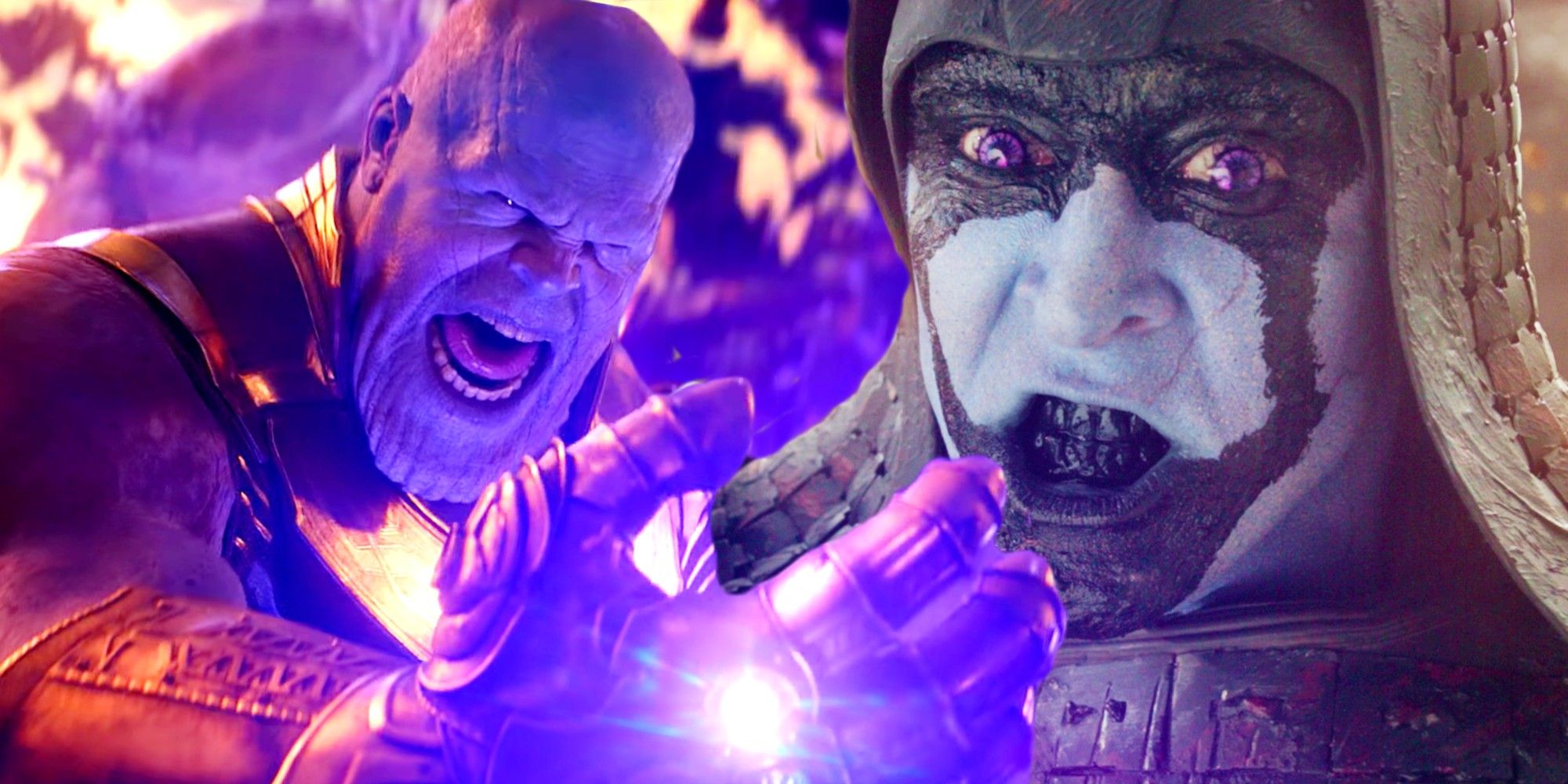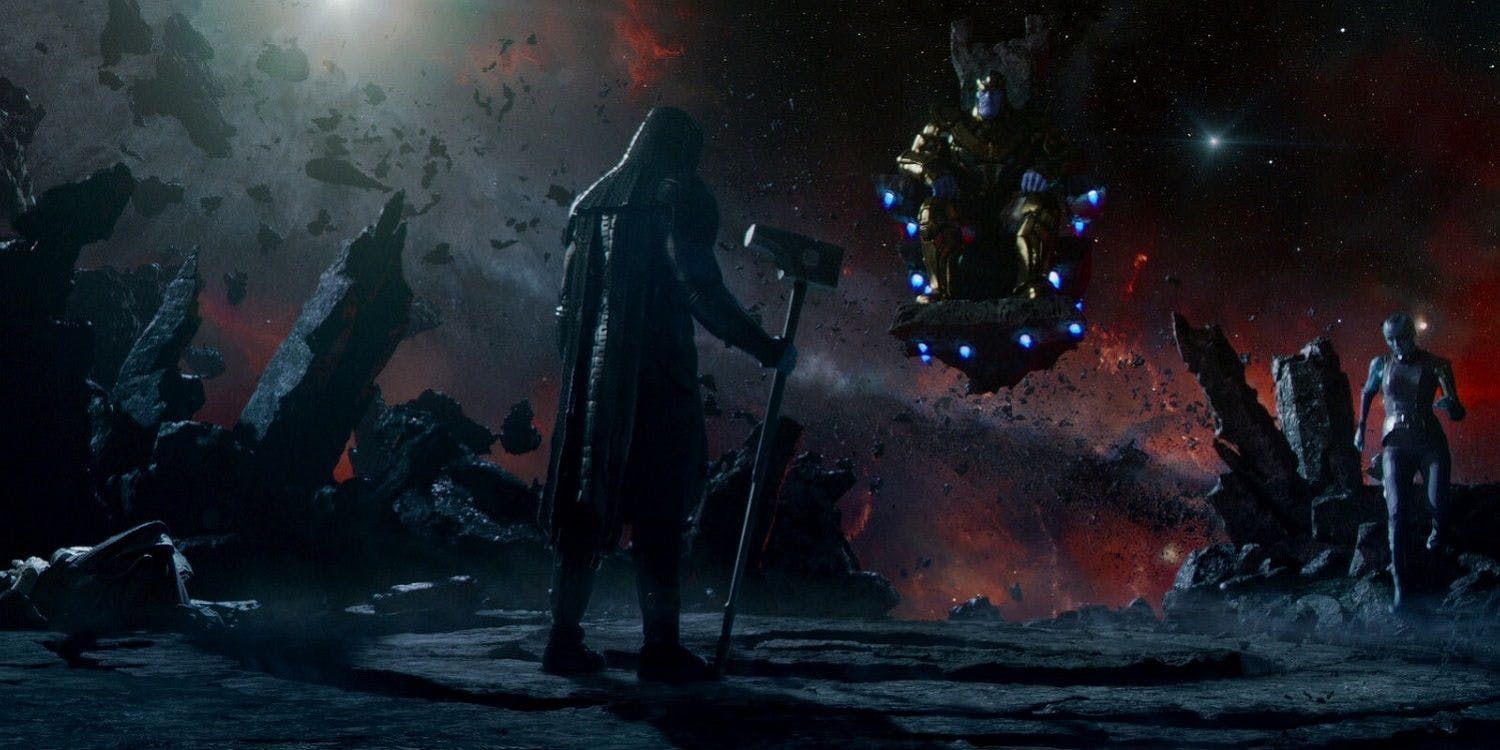Marvel Studios originally included Thanos (Josh Brolin) in Guardians of the Galaxy to catalyze Ronan’s (Lee Pace) evolution as a villain, but the Kree extremist is still a weak, one-dimensional antagonist even with the addition of Thanos in Vol 1. While the MCU has delivered some complex villains in more recent years with Spider-Man: Homecoming’s Vulture and Guardians of the Galaxy Vol 2.'s Ego, some films from Phases 1 and 2 of the MCU featured underdeveloped villains, with Ronan being no exception. While Thanos is now known within the MCU as one of the most prominent adversaries the Avengers ever encountered, Marvel Studios ascertains that Thanos was initially introduced in Guardians of the Galaxy to further Ronan’s story.
While Thanos is briefly introduced into the MCU during The Avengers post-credit scene, Guardians of the Galaxy is the first film to properly feature Thanos during the early stages of his search for the Infinity Stones. According to The Story of Marvel Studios: The Making of the Marvel Cinematic Universe by Tara Bennett and Paul Terry, a book chronicling the production of the MCU, Thanos was present in Guardians of the Galaxy to service Ronan’s own character development rather than establish him as the big bad of the MCU. “We put Thanos in there so that Ronan could tell him to [go to hell] - so that he evolved as a villain himself. There was not a lot of [Thanos] ground-laying, necessarily. It was simply furthering the story of these characters,” says Marvel Studios president Kevin Feige. While Thanos’ role in Guardians of the Galaxy may have provided Ronan with more agency, Thanos’ presence in the film didn’t necessarily transform Ronan into a complex villain.
Thanos’ presence in Guardians of the Galaxy didn’t change Ronan’s rudimentary motivation to attain power. While Ronan aspires to kill the Xandarian people simply because he doesn’t forgive them for the millennium of war that caused the deaths of his ancestors, his story of personal revenge is never developed further and he appears to be more interested in acquiring power. Ronan aligns himself with Thanos mainly because he has the reputation of being “the most powerful being in the universe.” He initially makes an agreement with Thanos to retrieve the orb in exchange for the destruction of Xandar, but decides he no longer needs Thanos’ strength once he himself has possession of the Power Stone. He even proclaims that once he’s decimated Xandar, he’ll come for Thanos next, essentially challenging him for his title. While Thanos may have elevated Ronan’s purpose by questioning his authority, Ronan’s purpose was still only destruction for destruction’s sake, which is an unsubstantial incentive for any villain.
Thanos challenging Ronan in Guardians of the Galaxy alternatively reveals Ronan’s greatest weaknesses as a villain. During the scene when Thanos summons Ronan to his domain, Ronan is chastised by The Other for Gamora’s betrayal. Since Ronan can’t directly oppose Thanos, he reacts by killing The Other with his Cosmi-Rod. Unfazed by his servant’s death, Thanos patronizingly addresses Ronan as “boy,” ridicules his political views, and mocks him for acting like a “pouty child.” When Thanos threatens Ronan to bring back the orb or face death, Nebula insinuates that Ronan should take the deal because he’ll never win a fight against Thanos. The way that Ronan behaves after being ridiculed by Thanos actually proves Thanos’ point because Ronan immaturely decides to betray Thanos only after Nebula questions his authority and Thanos disrespects him.
Possibly the reason that Thanos’ presence in Guardians of the Galaxy doesn’t help Ronan evolve as a villain is because Thanos himself is underdeveloped. Many viewers were unaware of Thanos’ importance in the Marvel universe during his debut. Since Thanos simply sits on a throne and delivers vague threats against Ronan that he never carries out, Thanos understandably isn’t very active within the plot and doesn’t yet live up to the reputation he’s cultivated as the “most powerful being in the universe.” With this in mind, Ronan provoking Thanos didn’t have as much of an impact in Guardians of the Galaxy because most viewers didn’t yet know what Thanos was capable of.








